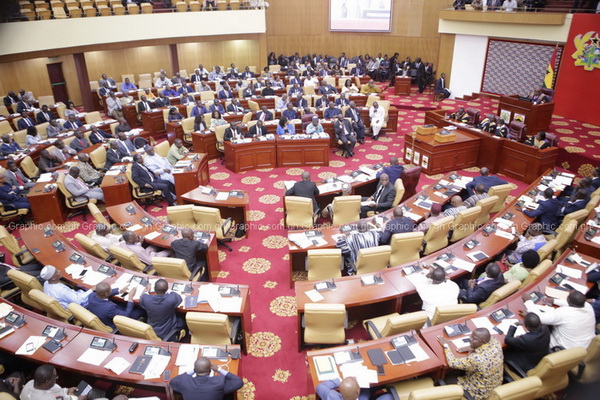
What did Parliament do with NACAP?
When in July 2014 the national anti-corruption plan got to Parliament to be approved and adopted, it was reported that the members of the House were all for it.
With one accord, they approved and passed it on July 3, 2014.
Advertisement
They did not accuse each other about specific actions and inactions in relation to the fight against corruption, but passed the National Anti-Corruption Action Plan (NACAP) as the strategic document to guide in making corruption an intolerable activity in the country.
The Members of Parliament (MPs), therefore, on July 3, 2014, adopted the strategy as a national - and not a particular party - plan to focus all efforts on the championing of a cause.
In adopting it, MPs committed themselves and those they represent (all Ghanaians) to a coordinated campaign of awareness creation around the issues of corruption, the prevention of it in all forms, and investigation and the prosecution of corrupt practices.
They also gave their blessing to a monitoring and evaluation (M&E) plan, embedded in the NACAP.
For the first time in the history of anti-corruption efforts in the country, M&E systematically measures the progressive steps made by all ministries, departments and agencies (MDAs), metropolitan, municipal and district assemblies (MMDAs), the private sector, traditional and religious organisations, civil society organisations, the media and the public in preventing corruption.
Thus, Parliament blessed the establishment of the High Level Implementation Committee (HiLIC), chaired by the Chief of Staff, and the 10-member Monitoring Committee (called the MONICOM).
The MONICOM comprises representatives from the Commission on Human Rights and Administrative Justice (CHRAJ), the National Development Planning Commission (NDPC), the Public Services Commission (PSC), the private sector and the Ghana Anti-Corruption Action Coalition (GACC).
The MONICOM has developed the M&E plans, sensitised agencies to how to collect data and report on their activities under NACAP with the appropriate tools to help in doing that, as well as provide technical support.
With this effort, the stakeholders have already reported on twice on their efforts for the years 2015 and 2016.
With all these actions, work plans and efforts, who is breathing down our necks to ensure we stick to the script?
In other words, who is monitoring the HiLIC and the MONICOM to ensure we do what we have committed ourselves to?
Would it not be the same representatives who adopted the strategy on our behalf?
Since the implementation of NACAP, has Parliament reviewed the implementation of what they adopted on our behalf?
Does the work of the House end with the adoption of strategic policy options and the passage of bills?
The functions of Parliament as listed in Chapter 10 of the 1992 Constitution include investigation and inquiry into the activities and administration of MDAs; including investigations and inquiry into proposals for legislation.
It is time for the House to review what it had adopted, to inquire into the activities of the various MDAs in relation to the implementation of the NACAP.
It is time for Parliament itself to have an agenda on how its own commitment to NACAP, a document it adopted on a bi-partisan basis, is to be operationalised.
Parliament can make us all stay on track by questioning the process, inviting those in charge to give an account of implementation so far and checking on those who control resources to find out whether we have all lived up to our various responsibilities under the strategy.
It is time those who adopted the strategy also showed their commitment to the plan.




